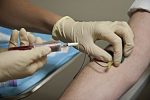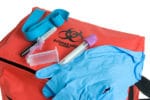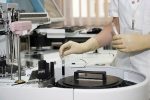Everyone has natural personality traits and inherent skills that make them suitable for different career paths. Similarly, every profession requires a variety of different traits and skills. You need to strike the right balance between these two factors.
Phlebotomy is no different than any other career in that aspect. If you’ve considered a career in phlebotomy, there’s a good chance you’ve asked yourself if you have what it takes? Almost anyone can go through the proper training and learn the basics. However, there are certain traits it takes to be a good phlebotomist.
In this article, we’ll cover those personality traits and skills. If they line up with your personal characteristics, you’ll likely find a career in phlebotomy enjoyable and fulfilling.
These traits and skills range from physical attributes to a willingness to adapt. Some skills can be learned with time. But, if you feel you have some of the characteristics discussed in this article, you may want to take a closer look at the field of phlebotomy.
[su_list icon=”icon: check-circle”]
The Most Important Personal Qualities for a Phlebotomy Career
Traits and skills are two different things. Traits focus more on personality and demeanor. Skills tend to focus on abilities. You need certain characteristics for both to be a great phlebotomist. Beyond training and having a basic understanding of what a phlebotomist does, the traits and skills that are needed can help you decide if it’s the right career for you.
What Skills Are Necessary?
- Dexterity: Hand-eye coordination is extremely important when you’re a phlebotomist, for your safety, and the safety of your patients. You’ll have to draw blood from patients multiple times each day.
For some patients, the idea of having their blood drawn can already be nerve-racking. So, if you’re typically clumsy or uncoordinated, you’re not going to put your patient at ease. You may also be prone to making a mistake with your venipuncture.
If you aren’t able to successfully perform a blood draw on the first try, it’s likely you’ll cause pain or discomfort to your patient. If you find that you’re regularly uncoordinated or don’t have a steady hand, phlebotomy likely isn’t the best career choice.
- Detail-Oriented: Drawing blood is just the beginning of a phlebotomist’s duties. They must place it in the proper vials with correct labels. These vials will typically go to a lab for different tests. A phlebotomist must know the proper procedures for everything, so there are no mix-ups with the specimens.
If specimens are mislabeled, mishandled or misplaced, it could result in harm to the patient.
A sharp mind is a huge advantage for a phlebotomist, and paying attention to details is crucial. Not only is it imperative to practice proper procedures, but small details can’t go unnoticed. For example, if two patients have the same last name on the same day, you must be able to identify the right person.
The details of patient information are just as important as labeling blood samples correctly. This includes everything from their name and phone number, to the reason they are having blood drawn.
- Cleanliness: It’s important for a phlebotomist to be neat, tidy, and organized throughout their job. This includes keeping a clean working environment, ensuring everything is sterile. If things become cluttered, or the phlebotomist is unorganized, blood samples can be mixed up, causing confusion. It can also be dangerous for the patient.
An unclean work environment won’t put a patient at ease. It also makes cross-contamination easy. If a piece of equipment does become contaminated, you and your place of employment could face serious repercussions, should something negative happen to a patient.
- Multitasking: Typically, a phlebotomist will work in a hospital or clinic. These places are known for being busy all the time. Even smaller labs and private practices typically see many patients a day, and there is never a dull moment. As a phlebotomist, it’s important to be able to multitask throughout your day.
Blood work is a necessity for doctors and nurses to discover things about their patients. They can’t wait around for lab results. There are often very tight deadlines in the field of phlebotomy that need to be met for patients to receive the care they need. In addition to being able to multitask, phlebotomists must be flexible to meet these deadlines and requests from other medical professionals.
- Stamina: Phlebotomy can be a fast-paced job, depending on where you work. It can be tiring to see so many different patients in one day and be on your feet for so long. It’s not only a phlebotomist’s job to draw blood, but to transport it to the lab for testing. With long hours on your feet and a lot of walking involved, it’s a great job for someone with a lot of endurance. If you’re unable to stand for long periods of time or have difficulty moving around, it may not be a solid career option for you.
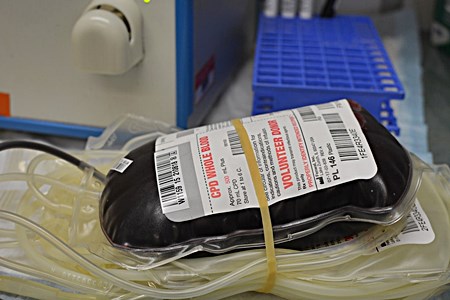
What Personality Traits Are Required?
- Compassion: There may be no greater personality trait for a phlebotomist to have than compassion. As a phlebotomist, you’ll work with a variety of different people each day. Some of them will be sick, some will be elderly, and some will even be children. It’s a necessity to show compassion for each patient, no matter what their needs may be.Additionally, some people have a great fear of getting blood drawn, or visiting the doctor in general. A phlebotomist can be one of the first members of a medical team that a patient sees to have testing done. Showing care and understanding throughout your procedures with a patient can make a big difference in their comfort level.
- Patience: Along with showing compassion to the people you work with, you have to be patient with each one. It won’t be easy to work with every patient. Some will have complaints, and others may just cause friction. Sometimes, there may even be a language barrier between you and your patient. It’s a phlebotomist’s job to remain patient and calm, no matter what type of situation arises while they are drawing blood.
It’s also necessary for a phlebotomist to be calm under pressure. This can fall into the category of multitasking, but when there are deadlines and requests to meet, a good phlebotomist will remain cool and collected. Getting frazzled over a patient or a deadline will take away from your productivity, and could distract you from doing your job well.
- Friendly: Your overall demeanor in any health profession should be friendly and pleasant. If you don’t like working with people or tend to be a bit more antisocial, a job in the healthcare industry probably isn’t right for you. Again, phlebotomists can be one of the first medical professionals a patient sees so that they can set the tone for that patient’s overall experience. A good bedside manner can is important.
- Team Player: Not only do phlebotomy technicians work with a variety of different patients, but they are a part of a team. As a phlebotomist, you’ll work with doctors, nurses, and lab technicians regularly. Remember that you are a part of the medical staff, all working toward a common goal with each patient. Someone on the team cannot have a personality that tends to work better alone. Open communication and cooperation with the people you work with every day are key.
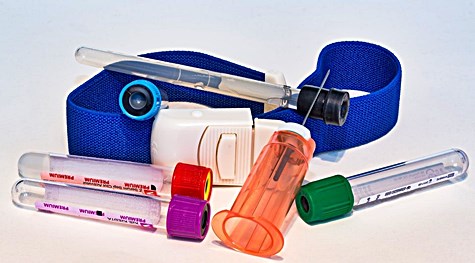
Is Phlebotomy the Right Career for Me?
Phlebotomy can be an extremely exciting career. It continues to grow in popularity in the healthcare industry. Even though it’s considered to be an entry-level job, there is a lot of room for growth in this particular field, or as a stepping stone to an advanced and better-paid medical career.
If you’ve considered pursuing a career in phlebotomy, ask yourself if you have the skills and traits listed in this article. If you can answer “yes” to all of them, phlebotomy may be a perfect job choice for you.
Having these characteristics will help you succeed as a phlebotomy technician, and will also make your job experience one you enjoy. That combination can lead to a successful and fulfilling career in medicine.
Your good skills and traits can also make for a more enjoyable experience for patients. That can completely alter someone’s opinion of the healthcare industry in a positive direction. So, with these characteristics, you can truly make a difference as a phlebotomist.
[/su_list]

